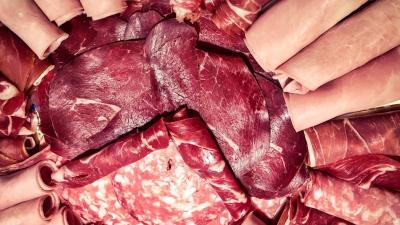Replacing Animal Products With a Vegan Diet Reduces Dietary Acid Load, Leading to Weight Loss in Patients with Type 1 Diabetes, Finds New Study

WASHINGTON, D.C.—Eating a low-fat vegan diet helps reduce the amount of acid consumed in the diet, which makes the body’s pH more alkaline and leads to weight loss for people with type 1 diabetes, finds new research from the Physicians Committee for Responsible Medicine published in Clinical Diabetes. About half of people with type 1 diabetes have extra weight.
“Eating acid-producing foods like meat, eggs, and dairy can increase the dietary acid load, or the amount of acid consumed, causing inflammation linked to weight gain,” says Hana Kahleova, MD, PhD, director of clinical research at the Physicians Committee for Responsible Medicine and lead author of the study. “But replacing animal products with alkaline plant-based foods like leafy greens, berries, and legumes can help promote weight loss in people with type 1 diabetes.”
The new research is a secondary analysis of a Physicians Committee study, which was the first randomized clinical trial to look at a vegan diet in people with type 1 diabetes. In the 12-week study, 58 adults with type 1 diabetes were randomly assigned to either a low-fat vegan group with no limits on calories or carbohydrates, or a portion-controlled group that reduced daily calorie intake for overweight participants and kept carbohydrate intake stable over time.
In this secondary analysis, participants’ dietary records were used to calculate dietary acid load, which is commonly estimated by two scores: Potential Renal Acid Load (PRAL) and Net Endogenous Acid Production (NEAP). A higher score indicates a higher dietary acid load.
Animal products including meat, fish, eggs, and cheese cause the body to produce more acid, increasing dietary acid load, which is linked to chronic inflammation that disrupts metabolism and can lead to increased body weight. Plant-based diets, which are more alkaline, are associated with weight loss, improved insulin sensitivity, and lower blood pressure.
In the new analysis, both PRAL and NEAP scores decreased significantly in the vegan group, with no significant change in the portion-controlled group. The reduction in dietary acid load was associated with weight loss, and this association remained significant even after adjustment for changes in energy intake. In 12 weeks, body weight decreased by 5.2 kilograms (about 11 pounds) in the vegan group, compared with a nonsignificant change in body weight in the portion-controlled group.
The authors say that a vegan diet’s alkalizing effect, which increases the body’s pH level to make it less acidic, may help promote weight loss. Top alkalizing foods include vegetables, particularly leafy greens, broccoli, beets, asparagus, garlic, carrots, and cabbage; fruits, such as berries, apples, cherries, apricots, or cantaloupe; legumes, for example lentils, chickpeas, peas, beans, or soy; and grains, such as quinoa or millet.
The original study found that a vegan diet also reduced insulin needs, improved insulin sensitivity and glycemic control, and led to improvements in cholesterol levels and kidney function in people with type 1 diabetes.
“Clinicians should consider recommending a plant-based diet to their patients with type 1 diabetes for the wide-ranging health benefits it can provide them, as well as possible cost savings from reduced insulin needs,” adds Dr. Kahleova.
Media Contact
Michael Keevican
202-527-7367
mkeevican[at]pcrm.org
Founded in 1985, the Physicians Committee for Responsible Medicine is a nonprofit organization that promotes preventive medicine, conducts clinical research, and encourages higher standards for ethics and effectiveness in education and research.






